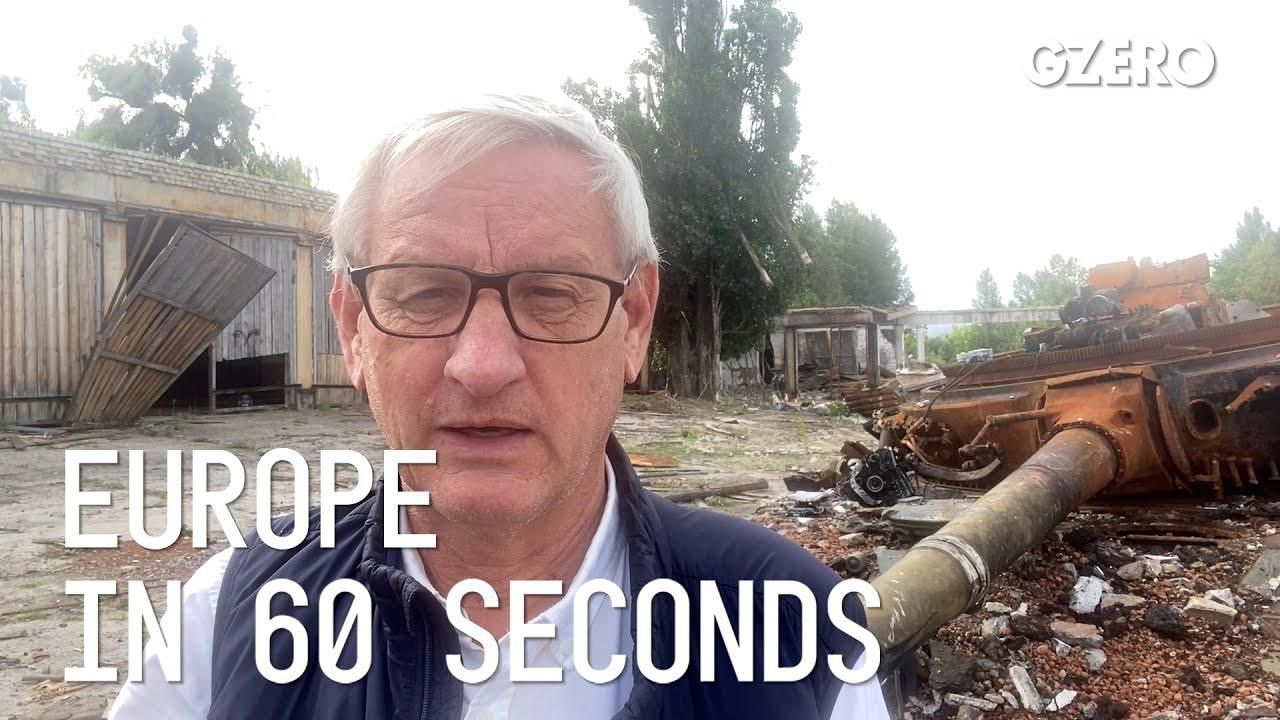
Carl Bildt, former prime minister of Sweden, shares his perspective from Hostomel Airport, just outside of Kyiv.
What's going to be the impact of the EU decision to grant Ukraine and Moldova the status of candidate countries?
Well, it is a momentous decision because it opens the door for EU membership, something that quite a number of the EU member states have been reluctant to discuss previously, because they considered rightly to be such an enormous undertaking for the future, that it would be sort of too much for the European Union to be able to do in the years ahead. But now that decision will be taken, and that is something that will shape policies for quite some time to come. There's no guarantee. Things can go wrong in the meantime. Turkey is an example of that. And it's a long slog ahead to align with all of the policies and the practices of the European Union in the years ahead. Part of that has already been done with the free trade agreement, the DCFTA, that was after some controversy, to put it very mildly, signed in 2014, but now the door will be open and the road to EU membership will begin. But before that, need to say, the war that was begun here at this very spot, will have to be won. And we are very far from that as of yet.